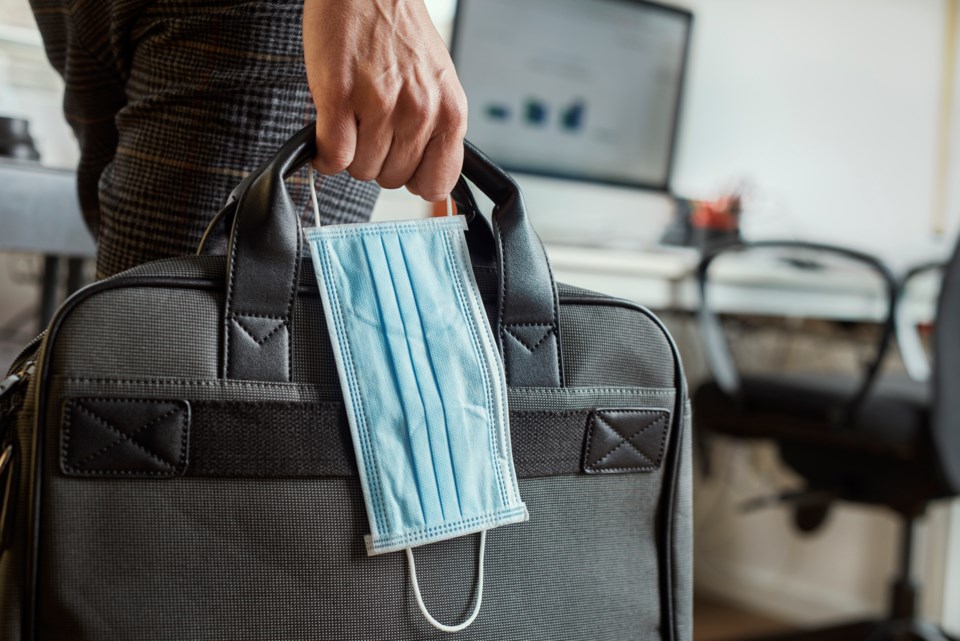NEWS RELEASE
BOULDER COUNTY PUBLIC HEALTH
*************************
The COVID-19 Public Health Emergency (PHE) for Boulder County officially ended on May 11, 2023.
On May 5, 2023, the World Health Organization (WHO) announced an end to the COVID Public Health Emergency of International Concern (PHEIC), which aligns with the announcement that the federal PHE for COVID-19 also expired on May 11, 2023.
“The end of the federal emergency declaration signals a positive shift in our COVID-19 response and reflects an overall reduction in severe health outcomes nationally. Boulder County has been in 'low transmission' for several weeks, which is heartening. Boulder County Public Health (BCPH) will continue to work with partners to monitor for new variants, respond to outbreaks and collaborate with state and local partners in a pared-down capacity,” said Dr. Lexi Nolen, interim executive director. “As Boulder County moves into the next phase of COVID-19 recovery, we are grateful for our communities’ continued support and cooperation. We have come a long way together, and by adhering to best practices and making small shifts if we see transmission increase, we can all continue to keep our community healthy.”
With 1349 hospital admissions and 158 deaths per day still occurring nationally, there is still risk, especially for older adults and those who are immunocompromised. BCPH outbreak investigations will now focus on priority settings and environments at high risk for transmission, such as congregate living facilities, jails and shelters. BCPH will continue to provide free COVID-19 vaccines until the state’s supplies are exhausted, which is expected in the fall of 2023.
In the future, access and cost for services such as COVID-19 testing and therapeutics may depend on specific private health insurance or coverage through Medicare or Medicaid. Colorado Senate Bill 23-260, Individual Access to Publicly Funded Vaccines, helps ensure Coloradans can get vaccinated regardless of whether they have health insurance, identification or the ability to pay an administration fee. The federal Bridge Access program will ensure access and coverage for vaccines and therapeutics for uninsured Americans.
Boulder County residents are encouraged to have a plan if they get sick and practice general disease prevention by washing hands frequently, staying home when sick, wearing a mask when appropriate and staying informed about the latest guidance and recommendations from public health authorities. Residents are also urged to stay up to date on vaccinations, which are critical tools in our long-term fight against COVID-19, including the variants that continue to emerge.
Take these steps to stay safe:
- Keep yourself and your family fully vaccinated and stay up to date when eligible. Vaccines are safe, effective and free for anyone aged six months and up, and they drastically reduce the chance of hospitalization and death.
- Have a plan for testing – If you plan to be near someone at high risk for severe disease, hospitalization, or death, consider getting tested prior to getting together.
- Increase airflow and ventilation – While indoors, use HEPA filters or increase ventilation and airflow by opening windows or increasing air circulation. Consider moving activities outdoors for the best protection.
- Keep your loved ones and community safe by following BCPH recommendations for isolation and quarantine, including getting tested if you are exposed to COVID-19 or have symptoms of COVID-19.
- Wash your hands with soap and water for at least 20 seconds.
- Consider wearing a well-fitting, medical-grade mask as an added layer of protection, especially when close to people at high risk for severe disease, hospitalization and death or in settings that primarily serve individuals who are not up to date or at high risk for severe disease.
- If you are immunocompromised or at high risk for severe disease:
- Talk to your health care provider about whether you need to wear a mask and take other precautions.
- Talk to your health care provider about whether you are a candidate for treatments like oral antivirals.
- Know your options – Recognize symptoms and warning signs and know when to seek urgent medical attention. Talk to your health care provider about treatment options
For more tips on how to consider your risk for contracting the disease, visit https://boco.org/COVIDrisk.
COVID-19 resources in Boulder County:
- Vaccine providers: boco.org/COVIDvaccine
- Testing: boco.org/COVID19testing
- Recommended COVID-19 precautions, masking: boco.org/COVIDprecautions
- Isolation and quarantine guidance: boco.org/quarantine-isolation
- COVID-19 therapeutics and treatments: https://covid19.colorado.gov/getting-covid-19-treatment
*************************


.jpg;w=120;h=80;mode=crop)
